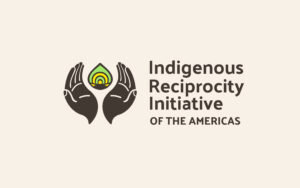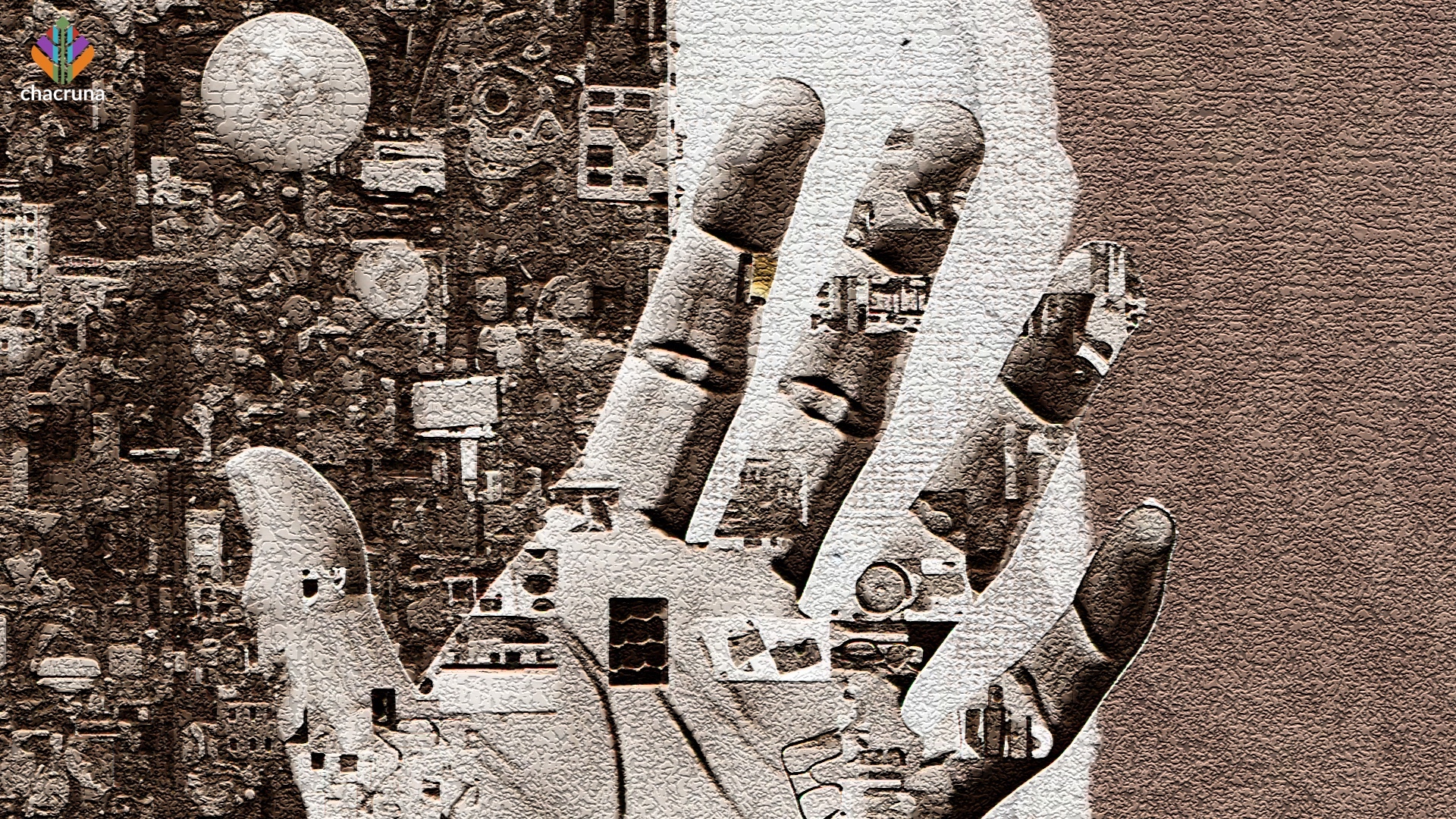In the rapidly evolving landscape of mental health care, the integration of traditional healing practices with modern technological advancements presents a unique and compelling opportunity. This article delves into the realms of psychedelic justice and data justice, exploring how the convergence of these two fields can pave the way for a more equitable and effective approach to mental health treatment.
Psychedelic justice, a term gaining traction in contemporary discourse, refers to the recognition and respect for the traditional use of sacred plants like ayahuasca and psilocybin mushrooms. These substances, revered for centuries in various Indigenous cultures for their healing and spiritual properties, have recently caught the attention of modern medicine for their potential in treating mental health disorders. As research in this area grows, so do questions about cultural rights, ethical responsibility, and equitable access to these emerging therapies.
Parallel to this is the concept of data justice. In an age where artificial intelligence (AI) and big data are revolutionizing industries, health care stands as a crucial domain where the impact of technology and collected data on our lives is profoundly felt. The use of AI in diagnostic algorithms and patient monitoring raises both hopes and concerns, particularly in the sensitive area of mental health. (Shaw & Sekalala, 2023).
This intersection of psychedelic medicine with data science and AI in mental health care is not just a collision of worlds but a fusion of possibilities.
This intersection of psychedelic medicine with data science and AI in mental health care is not just a collision of worlds but a fusion of possibilities. By exploring how these distinct yet interconnected realms can work together, I aim to shed light on a holistic approach to mental health care that is not only scientifically innovative but also culturally sensitive and ethically grounded. As I embark on this journey, I invite readers to consider the profound implications of marrying ancient wisdom with cutting-edge technology in the quest for modern equity in mental health care.
Psychedelic Justice and Sacred Plants
The concept of psychedelic justice emerges from a deep-rooted history where sacred plants have been central to healing and spiritual practices for centuries (Schunemann, 2023). Indigenous cultures around the world have long revered substances like ayahuasca, psilocybin mushrooms, and peyote for their profound ability to heal the mind and spirit. These practices, embedded in ritual and ceremony, are not merely about the substances themselves but the wisdom and context in which they are used. They represent a holistic approach to healing, where the balance of mind, body, and spirit is intricately interwoven with the community and the natural world.
As modern medicine begins to recognize the potential therapeutic benefits of psychedelics, there is a burgeoning interest in researching these substances. Clinical studies have shown promising results in using psychedelics to treat a range of mental health disorders, including depression, anxiety, and PTSD. (Simonsson et al., 2022; Marks & Cohen, 2021) This resurgence of interest, often termed the “psychedelic renaissance,” is not without its complexities. It raises significant questions about cultural rights and the appropriation of Indigenous knowledge.
The challenge lies in honoring and respecting the traditional use and cultural significance of these plants while navigating the waters of scientific research and therapeutic application. There is a growing concern about the potential commodification of these sacred substances and the risk of stripping them of their cultural and spiritual context (Devenot 2023). The ethical responsibility here extends beyond the clinical efficacy and safety of these substances. It encompasses the need to engage with and include Indigenous voices and knowledge systems in the conversation about psychedelic therapy (Rea & Wallace, 2021). This intersection of traditional wisdom and modern research in psychedelics is not just a matter of scientific inquiry but a dialogue of respect, recognition, and rights. Psychedelic justice, therefore, becomes a critical lens through which we view the integration of these ancient practices into contemporary mental health care. It is about ensuring equitable access to these therapies and acknowledging the profound cultural and spiritual dimensions that have been intrinsic to their use for generations. As we delve deeper into the potential of psychedelics in mental health treatment, we must tread with awareness and sensitivity, ensuring that this exploration is inclusive, respectful, and ethically grounded (Williams et al. 2023).

Shop our Collection of Psychedelic T-Shirts.
Data Justice in Mental Health Care
The integration of data and Artificial Intelligence (AI) in health care represents a significant shift in how we approach diagnosis, treatment, and overall patient care. In the realm of mental health, the implications are particularly profound. AI and data analytics offer the potential to revolutionize mental health care by providing more personalized and effective treatments, predicting potential mental health crises, and enhancing patient monitoring and support (McCradden et al., 2023).
The use of AI in mental health care includes a variety of applications, from algorithms that analyze speech patterns to predict depressive episodes to machine learning models that can tailor treatment plans to an individual’s unique psychological profile (Dougherty et al., 2022). These technological advancements could lead to earlier interventions, more accurate diagnoses, and treatments that are more closely aligned with a patient’s specific needs (Espejo et al., 2023).
However, the integration of AI in mental health care is not without its challenges. One of the most pressing concerns is data justice, which revolves around the ethical collection, use, and management of data. Mental health data is incredibly sensitive, and its handling raises significant privacy concerns. There is a risk that this data could be misused, leading to stigmatization or discrimination against individuals with mental health conditions (Hummel & Braun, 2020).
Moreover, there is the challenge of potential biases in data-driven health care. AI systems are only as unbiased as the data they are trained on. If the data reflects historical biases or lacks diversity, these biases can be perpetuated and even amplified by AI systems. This is particularly concerning in mental health care, where misdiagnoses or inappropriate treatments can have severe consequences. For instance, if an AI model is trained predominantly on data from a certain demographic, it might not perform accurately for individuals outside that demographic.
Ensuring data justice in mental health care means advocating for transparency in how AI models are developed and used, ensuring diverse and representative data sets, and maintaining strict privacy and security measures to protect patient data.
Ensuring data justice in mental health care means advocating for transparency in how AI models are developed and used, ensuring diverse and representative data sets, and maintaining strict privacy and security measures to protect patient data. It also involves ongoing monitoring and evaluation of AI systems to identify and correct biases.
As we embrace the possibilities that AI and data analytics bring to mental health care, we must also be vigilant in addressing the challenges. Data justice is not just a technical issue; it’s a moral imperative to ensure that the benefits of AI in health care are accessible to all and that the dignity and rights of every individual are respected and protected.
AI and Psychedelic Research
The potential of Artificial Intelligence (AI) in advancing psychedelic research is immense and multi-faceted (Jimenez 2022). AI’s capabilities in data analysis and pattern recognition can play a pivotal role in unraveling the complex neurological impacts of psychedelics. (Hamilton 2023). These substances, known for their profound effects on the human mind, present a unique challenge to researchers seeking to understand their mechanisms and therapeutic potential.
AI can aid in deciphering the vast and intricate data sets generated by psychedelic research (Kargbo 2023). For example, machine learning algorithms can analyze brain imaging data to identify patterns and correlations between psychedelic use and changes in brain activity. This analysis can lead to a deeper understanding of how psychedelics modulate neural pathways and contribute to their therapeutic effects.
Moreover, AI can significantly accelerate psychedelic research. By automating the analysis of large-scale data, AI allows researchers to glean insights more quickly and efficiently than traditional methods (Zcubukcu 2023; Barnett 2022). This speed is crucial in a field where the urgency for effective mental health treatments is ever-growing. AI can also assist in the development of new psychedelic compounds, using predictive models to estimate their efficacy and safety, thus streamlining the drug development process.
Ethical Considerations and Regulatory Oversight
The intersection of AI and psychedelic therapy introduces a range of ethical complexities and underscores the need for robust regulatory oversight. As we venture into this new territory, the ethical implications of using AI in psychedelic therapy must be carefully considered. This includes issues related to patient privacy, data security, and the potential for AI systems to make decisions that could significantly impact patient care.
Regulatory frameworks are essential in ensuring that AI-assisted psychedelic therapy is conducted safely, ethically, and with respect for patient autonomy. These frameworks should address the accuracy and fairness of AI algorithms, ensuring they are free from bias and are transparent in their decision-making processes.
AI should be seen as a tool to enhance, not replace, the therapeutic relationship and human judgment in psychedelic therapy.
Maintaining a balance between leveraging AI’s capabilities and preserving human-centric care is paramount. AI should be seen as a tool to enhance, not replace, the therapeutic relationship and human judgment in psychedelic therapy (Stamm 2020). This balance is critical in ensuring that the benefits of AI are realized while safeguarding the human elements that are central to effective and compassionate mental health care.
Conclusion
The integration of psychedelic justice with data justice represents a significant step forward in the field of mental health care. By combining the ancient wisdom of psychedelic practices with the cutting-edge advancements of AI, we open the door to a more equitable, effective, and comprehensive approach to mental health treatment. This fusion promises to not only enhance our understanding of mental health disorders but also to offer more personalized and humane treatments.
The integration of psychedelic justice with data justice represents a significant step forward in the field of mental health care. By combining the ancient wisdom of psychedelic practices with the cutting-edge advancements of AI, we open the door to a more equitable, effective, and comprehensive approach to mental health treatment.
The potential benefits of this integration are vast, ranging from improved patient outcomes to a deeper understanding of the human mind. However, as we navigate this new terrain, we must remain mindful of the ethical and regulatory considerations that accompany such innovation. The ultimate goal is to ensure that the advancements in psychedelic research and AI serve the greater good, providing equitable and ethical mental health care for all.
Art by Luana Lourenço.

Discover the Indigenous Reciprocity Initiative of the Americas
References
Barnett, BS. (2022). Deepening our understanding of psychedelics by expanding psychedelic data collection in the United States National Survey on Drug Use and Health. Journal of Psychopharmacology, 36(10), 1097-1099. http://dx.doi.org/10.1177/02698811221123051
Devenot N. (2023). TESCREAL hallucinations: Psychedelic and AI hype as inequality engines. Journal of Psychedelic Studies. http://dx.doi.org/10.1556/2054.2023.00292
Dougherty, R.F., Clarke, P., Atli, M. (2023). Psilocybin therapy for treatment resistant depression: prediction of clinical outcome by natural language processing. Psychopharmacology, http://dx.doi.org/10.1007/s00213-023-06432-5
Espejo G, Reiner W, Wenzinger M. (2023). Exploring the Role of Artificial Intelligence in Mental Healthcare: Progress, Pitfalls, and Promises. Cureus, 15(9), http://dx.doi.org/10.7759/cureus.44748
Hamilton A. (2023). AI and Psychedelics: Transforming Healthcare Through Innovation. https://www.mychedelica.com/blog/ai-and-psychedelics
Hummel, P., Braun, M. (2020). Just data? Solidarity and justice in data-driven medicine. Life Sciences, Society and Policy 16(8). http://dx.doi.org/10.1186/s40504-020-00101-7
Jimenez D. (2022). How AI could unlock the medical potential of psychedelics. Access: 06.12.2023. https://www.pharmaceutical-technology.com/features/ai-unlock-medical-potential-psychedelics/
Kargbo R.B. (2023). Pioneering Changes in Psychiatry: Biomarkers, Psychedelics, and AI, ACS Medicinal Chemistry Letters, 14 (9), 1134-1137, DOI: 10.1021/acsmedchemlett.3c00333, https://pubs.acs.org/doi/pdf/10.1021/acsmedchemlett.3c00333
Marks, M., Cohen, I.G. (2021). Psychedelic therapy: a roadmap for wider acceptance and utilization. Nature Medicine 27, 1669-1671, http://dx.doi.org/10.1038/s41591-021-01530-3
McCradden, M., Hui, K., Buchman, D. Z., (2023). Evidence, ethics and the promise of artificial intelligence in psychiatry. J. Med. Ethics, 49, 573−579. https://jme.bmj.com/content/49/8/573
Rea K., Wallace B. (2021). Enhancing equity-oriented care in psychedelic medicine: Utilizing the EQUIP framework, International Journal of Drug Policy, 98, http://dx.doi.org/10.1016/j.drugpo.2021.103429
Shaw J, Sekalala S. (2023). Health data justice: building new norms for health data governance. NPJ Digital Medicine. 28;6(1):30. http://dx.doi.org/10.1038/s41746-023-00780-4
Schunemann M.J., (2023). Psychedelic Justice: Towards a Diverse and Equitable Psychedelic Culture, Interdisciplinary Science Reviews, http://dx.doi.org/03080188.2023.2239528
Simonsson O., Hendricks P.S., Chambers R., Osika W., Goldberg S.B. (2022). Classic psychedelics, health behavior, and physical health. Therapeutic Advances in Psychopharmacology, 12, http://dx.doi.org/10.1177/20451253221135363
Stamm E. (2020). Hallucinating Facts: Psychedelic Science and the Epistemic Power of Data. Dissertation submitted to the faculty of the Virginia Polytechnic Institute and State University, Access: 06.12.2023. https://vtechworks.lib.vt.edu/server/api/core/bitstreams/d17c4754-e9ea-4356-a09d-d2cf93392587/content
Williams, M.T., Cabral, V. & Faber, S. (2023). Psychedelics and Racial Justice. International Journal of Mental Health and Addiction, https://doi.org/10.1007/s11469-023-01160-5
Zcubukcu A. (2023). The psychedelic industry needs data. But what data, and why? Access: 06.12.2023. https://www.clerkenwellhealth.com/blog-articles/the-psychedelic-industry-needs-data-but-what-data-and-why
Take a minute to browse our stock:
Did you enjoy reading this article?
Please support Chacruna's work by donating to us. We are an independent organization and we offer free education and advocacy for psychedelic plant medicines. We are a team of dedicated volunteers!
Can you help Chacruna advance cultural understanding around these substances?

















